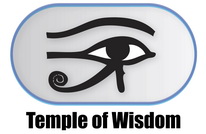
The Talmud is a central text in Judaism, consisting of two distinct components: the Mishnah and the Gemara. The Mishnah is a compilation of Jewish oral law that was written down in the early third century CE, while the Gemara is a commentary on the Mishnah that was produced over several centuries in different locations throughout the Jewish diaspora. Together, these two components form the Talmud, which is considered to be one of the most important and influential texts in Jewish tradition. In this essay, we will explore the ways in which the Talmud has influenced Jewish law and religious practices.
Firstly, it is important to note that the Talmud is not simply a legal code, but rather a complex and multifaceted work that encompasses a wide range of topics, including law, ethics, theology, and history. As such, it has played a significant role in shaping the intellectual and cultural landscape of Judaism. The Talmud has been studied and interpreted by scholars and laypeople alike for centuries, and its teachings have informed Jewish thought and practice in a variety of ways.
One of the most significant ways in which the Talmud has influenced Jewish law and religious practices is through its role in the development of halakhah, or Jewish law. The Mishnah contains a comprehensive system of legal principles and regulations, covering topics such as prayer, Sabbath observance, dietary laws, and the laws of marriage and divorce. The Gemara provides commentary on the Mishnah, offering additional insights and interpretations of the law. Through this process of commentary and interpretation, the Talmud has helped to clarify and expand upon Jewish legal principles, making them more accessible and applicable to everyday life.
In addition to its role in the development of Jewish law, the Talmud has also had a profound impact on Jewish ethics and morality. The Talmudic teachings emphasize the importance of ethical behavior, such as honesty, integrity, and compassion, and provide guidance on how to live a virtuous life. For example, the Talmud teaches that “whoever saves a single life is considered to have saved the entire world” (Mishnah Sanhedrin 4:5), emphasizing the value of human life and the importance of helping others. These ethical teachings have had a lasting impact on Jewish thought and practice, shaping the moral compass of the Jewish people for generations.
Another way in which the Talmud has influenced Jewish religious practices is through its emphasis on study and scholarship. The Talmud is a vast and complex work, and the process of studying and interpreting it requires a great deal of intellectual rigor and discipline. The Talmudic tradition emphasizes the importance of learning and scholarship, encouraging Jews to engage in lifelong study and reflection. This emphasis on study has helped to foster a culture of intellectual curiosity and inquiry within the Jewish community, and has played a significant role in shaping Jewish intellectual history.
Moreover, the Talmud has also influenced Jewish religious practices through its emphasis on communal worship and prayer. The Talmudic tradition places great importance on the communal nature of Jewish worship, encouraging Jews to come together to pray and study. This emphasis on communal worship has helped to foster a sense of community and belonging within the Jewish community, and has played a significant role in shaping Jewish religious practice.
In addition to its impact on Jewish law, ethics, scholarship, and religious practices, the Talmud has also had a significant influence on Jewish culture and identity. The Talmudic tradition has played a central role in shaping Jewish literary and artistic expression, inspiring works of poetry, music, and visual art. The Talmudic tradition has also played a significant role in shaping Jewish identity, providing a shared cultural heritage and intellectual tradition that has helped to bind the Jewish people together across time and space. The Talmud has served as a unifying force within the Jewish community, providing a common language and intellectual framework that has helped to bridge cultural and geographic divides.
Furthermore, the Talmud has also played a significant role in shaping Jewish intellectual history. The Talmudic tradition has inspired generations of Jewish scholars and thinkers, who have built upon its teachings and used them as a foundation for further exploration and inquiry. The Talmudic tradition has also contributed to the development of Jewish philosophy and theology, providing a rich source of ideas and concepts that have helped to shape the Jewish intellectual tradition.
In conclusion, the Talmud has had a profound impact on Jewish law, ethics, scholarship, religious practices, culture, identity, and intellectual history. Its teachings have shaped the moral compass of the Jewish people, fostered a culture of intellectual inquiry, and helped to bind the Jewish community together across time and space. The Talmudic tradition continues to be a vital part of Jewish life and culture, inspiring generations of scholars, artists, and thinkers, and providing a rich and multifaceted intellectual tradition that continues to inform and shape Jewish thought and practice today.







